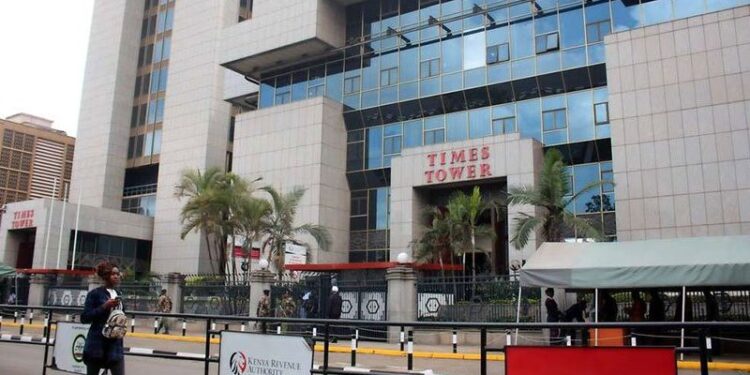For Kenyan business professionals, tax compliance isn’t just a legal obligation—it’s a cornerstone of running a smooth operation. Whether you’re a Nairobi-based entrepreneur, a Mombasa trader, or a Nakuru manufacturer, paying your taxes to the Kenya Revenue Authority (KRA) on time keeps your business in good standing and avoids those dreaded penalties. But here’s the catch: knowing where to pay your KRA dues can make all the difference. That’s why we’ve put together this comprehensive guide on the list of banks accepting KRA payments in Kenya, updated for 2025, to ensure you’ve got all the options at your fingertips.
Why Paying KRA Taxes Through Banks Matters in 2025
Let’s face it—tax season can be a headache, but the KRA has made it simpler with its digital-first approach. The iTax platform, launched in 2014, lets you file returns and generate payment slips online, which you then take to an appointed bank to settle your dues.
Full List of Banks Accepting KRA Payments in Kenya
Here’s the complete list of banks where you can pay KRA payments in 2025, as approved by the Kenya Revenue Authority. These institutions accept payments for all tax types—VAT, income tax, PAYE, and more—via iTax-generated e-slips.
- African Banking Corp Bank Ltd
- A solid choice for businesses in urban centers like Nairobi and Kisumu.
- Bank of Africa Kenya Limited
- Known for its SME-friendly services, with branches across major towns.
- Barclays Bank of Kenya (now Absa Bank Kenya)
- A legacy name with widespread ATMs and online payment options.
- Stanbic Bank Kenya Limited
- Offers robust corporate banking, ideal for large firms.
- Chase Bank Limited (under receivership, check status)
- Historically listed, but verify availability due to past challenges.
- Citibank N.A
- Caters to multinationals and high-net-worth clients.
- Commercial Bank of Africa Limited (merged into NCBA)
- Now part of NCBA Group, a powerhouse in digital banking.
- Consolidated Bank of Kenya Limited
- A public-sector favorite with a focus on accessibility.
- Cooperative Bank of Kenya Limited
- Over 200 branches nationwide, perfect for rural and urban businesses.
- Credit Bank Limited
- A growing player with personalized SME support.
- Diamond Trust Bank (DTB)
- Strong in Islamic banking and digital payments.
- Eco Bank Limited
- Pan-African reach with seamless tax payment services.
- Equity Bank Limited
- Kenya’s largest bank by customer base, with 190+ branches.
- Family Bank Limited
- Affordable banking for small businesses and individuals.
- First Community Bank Limited
- Sharia-compliant options for diverse taxpayers.
- Giro Commercial Bank Limited
- A niche bank with a loyal SME clientele.
- Guaranty Trust Bank Kenya Limited
- Known for competitive rates and online platforms.
- Guardian Bank
- Reliable for businesses in Nairobi and beyond.
- Gulf African Bank Limited
- Another Sharia-compliant option with growing reach.
- Habib Bank A.G. Zurich
- Specializes in international trade and forex-related payments.
- I&M Bank Limited
- Strong corporate banking with iTax integration.
- Kenya Commercial Bank Limited (KCB)
- 250+ branches and a leader in mobile banking via KCB M-Pesa.
- Kenya Post Office Savings Bank (Postbank)
- Affordable, government-backed payment services.
- Middle East Bank Limited
- Smaller but efficient for tax transactions.
- M-Payment (M-Pesa)
- Not a bank, but KRA’s mobile payment star—Paybill 572572.
- National Bank of Kenya
- Recently acquired by KCB, still a standalone payment option.
- NIC Bank Limited (merged into NCBA)
- Now NCBA, offering premium banking services.
- Oriental Commercial Bank Limited
- A lesser-known gem for tax payments.
- Paramount Universal Bank Limited
- Focused on personalized business banking.
- Prime Bank Limited
- Strong in trade finance and tax facilitation.
- Sidian Bank Limited
- Formerly K-Rep Bank, great for micro-businesses.
- Spire Bank Limited
- Compact network but KRA-approved.
- Standard Chartered Bank Limited
- Global reach with top-tier digital tools.
- Transnational Bank Limited
- Now Access Bank Kenya, expanding its footprint.
- UBA Kenya Limited
- Pan-African banking with efficient tax services.
- Victoria Commercial Bank Limited
- Boutique banking with a business focus.
How to Pay KRA Taxes Through These Banks
Paying your KRA taxes is straightforward, thanks to the iTax system. Here’s the step-by-step:
- Log into iTax: Visit www.kra.go.ke, sign in with your PIN and password, and file your return.
- Generate an E-Slip: After filing, download the payment slip with a unique PRN (Payment Registration Number).
- Visit a Bank: Head to any of the 36 listed banks or use their online platforms.
- Make the Payment: Present the e-slip (valid for 7 days) and pay via cash, cheque, or digital transfer.
- M-Pesa Option: Dial *334#, select “Lipa na M-Pesa,” enter Paybill 572572, and use the PRN as the account number.
- Confirmation: KRA sends an SMS once the payment reflects—usually within 24 hours.
Which Banks Are Best for KRA Payments?
Not all banks are equal when it comes to convenience. Here’s a breakdown based on accessibility, fees, and digital tools:
- Best for Nationwide Reach:
- Equity Bank: 190+ branches, 3,000+ agents.
- KCB: 250+ branches, extensive ATM network.
- Cooperative Bank: 200+ branches, strong rural presence.
- Best for Digital Payments:
- M-Pesa: Instant, no branch visit needed (KES 50 fee cap).
- NCBA Bank: Seamless online banking via NCBA Loop.
- Standard Chartered: Robust app with zero transaction fees for iTax.
- Best for SMEs:
- Family Bank: Affordable fees, SME-focused services.
- Sidian Bank: Tailored support for micro-businesses.
- Diamond Trust Bank: Competitive rates for traders.
- Best for Corporates:
- Citibank N.A: High-value transaction expertise.
- I&M Bank: Corporate banking with tax solutions.
- Stanbic Bank: Multi-currency payment options.
Fees and Costs for KRA Payments at Banks
Bank charges for KRA payments vary, but here’s the scoop:
- Over-the-Counter: KES 100–200 per transaction (e.g., KCB charges KES 120).
- Online Banking: Often free or KES 50–100 (e.g., Equity’s EazzyBiz).
- M-Pesa: KES 22–50, depending on the amount (e.g., KES 34 for KES 10,000).
- Cheques: Free for account holders, but funds must clear first.
Why So Many Banks? KRA’s Strategy Explained
KRA’s partnership with 36 banks isn’t random—it’s a calculated move to maximize compliance. Kenya’s banking sector includes 42 licensed commercial banks (CBK, 2023), and KRA taps most of them to:
- Boost Accessibility: From urban hubs to rural outposts, you’re covered.
- Leverage Technology: Real-time data sharing (Finance Act, 2023) helps KRA track payments instantly.
- Cater to Diversity: Sharia-compliant banks like Gulf African and First Community serve unique markets.
Challenges of Paying KRA Taxes via Banks
It’s not all smooth sailing. Here’s what to watch out for:
- Network Downtime: Bank or iTax system outages can delay payments—plan ahead.
- Bank Mergers: Chase Bank’s status or NCBA’s consolidation might confuse some users.
- Rural Gaps: Smaller banks like Middle East or UBA have limited branches outside cities.
- Fees: Multiple transactions can stack up costs for SMEs—use M-Pesa for low amounts.
Solution: Cross-check bank status on www.kra.go.ke before heading out, especially for lesser-known names.
How to Choose the Right Bank for Your KRA Payments
Picking the best bank depends on your business needs. Here’s a quick guide:
- Location: Got a branch nearby? Co-op or Equity are safe bets.
- Digital Savvy: Prefer online? NCBA or StanChart lead the pack.
- Business Size: SMEs love Family Bank; corporates lean toward Citibank.
- Cost: Tight budget? M-Pesa or Postbank keep fees low.
- Speed: Need instant reflection? KCB and Equity sync fast with iTax.
Insight: Over 50% of Kenyan businesses use mobile money for taxes (CBK, 2023)—M-Pesa’s dominance is a time-saver.





